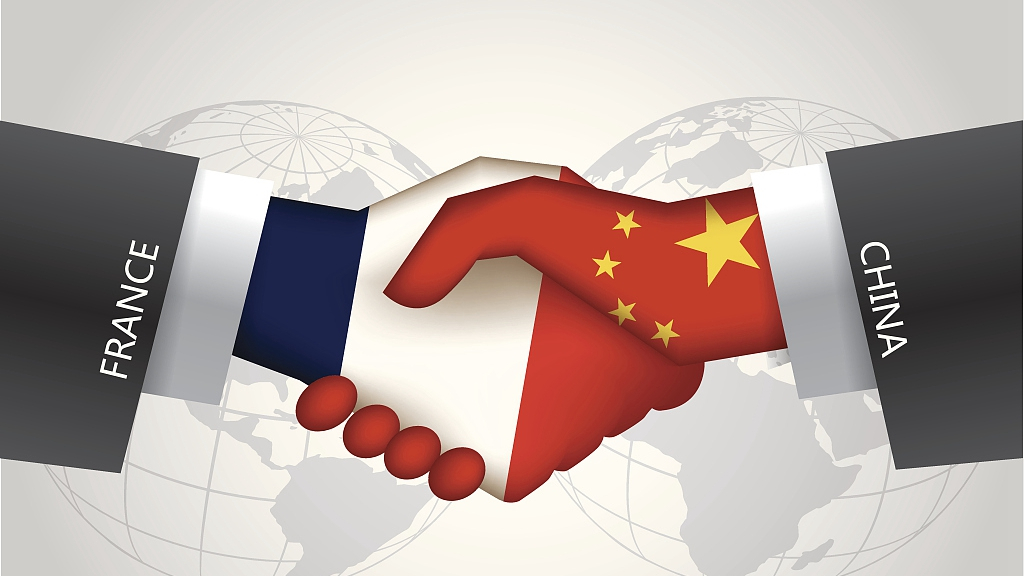
Opinion
09:48, 27-Mar-2019
China, France on the same page when it comes to global governance

Editor's note: The following is an edited translation of the commentary from the Chinese-language "Commentaries on International Affairs" published on China Plus on March 26, 2019.
During President Xi Jinping's state visit to France this week, a road thousands of miles away became a topic of discussion. Inaugurated three years ago, the No. 1 National Highway in the Republic of Congo links that country's principal economic hub Pointe-Noire to its capital Brazzaville, cutting travel time from one week to 6 hours. The project was the fruit of a successful collaboration between China's State Construction Engineering Corporation and France's engineering group Egis. The project stands as an example of a successful collaboration between China and France on a nation-building project in a third country.
As permanent members of the United Nations (UN) Security Council and major economic powers, China and France have a solid foundation for cooperation on a wide range of issues on global governance. This cooperation is helped by the fact that the leadership of the two countries share similar views on many of the issues facing the world today, including the importance of a multilateral approach to world affairs.
During his first address to the United Nations annual gathering of world leaders in New York in 2017, French President Emmanuel Macron noted that "multilateralism is the most efficient way to face global challenges. It is the realization of a vision of the world that protects us." In his view, the United Nations "has all its legitimacy to act and maintain international balances." This sentiment was echoed by Chinese President Xi Jinping when he met United Nations Secretary-General Antonio Guterres last year. President Xi called the United Nations "the flag of multilateralism" and said that a stronger United Nations is needed now more than ever before in the face of rising unilateralism and protectionism.
And when it comes to global governance relating to climate change, France has played an active role in promoting progress. China's practical support has also proved critical: When the U.S. withdrew from the Paris Agreement, if China had opted to quit in defense of its national economic interests, the agreement would have been worth little more than the paper it was written on.

President Xi Jinping holds talks with France's President Emmanuel Macron at the Elysee Palace in Paris, France, March 25, 2019. /Xinhua Photo
President Xi Jinping holds talks with France's President Emmanuel Macron at the Elysee Palace in Paris, France, March 25, 2019. /Xinhua Photo
China and France have both been beneficiaries of globalization. They can both see the value of adhering to a multilateral approach and don't shirk their responsibilities as leading powers in the world. This is why they have come to cooperate with each other on many other issues.
During his first state visit to China last year, President Macron said that China and Europe should work together on the Belt and Road Initiative. The initiative – China's largest contribution to global governance and development – aims to achieve win-win results for all of the participants. This is why President Xi said during his time in Paris that China and France need to work together to implement Belt and Road demonstration projects in third-party markets. And it's why France will be an active participant in the second Belt and Road Forum for International Cooperation that will be held in Beijing next month.
On the Iran nuclear issue, both China and France have promised to strictly abide by the Joint Comprehensive Plan of Action between Iran, the five permanent members of the UN Security Council, Germany, and the European Union after Washington announced its withdrawal from the deal last year. France, together with the UK and Germany, has since created a new payment channel in Paris to allow European businesses to trade with Iran without falling foul of American sanctions. This concrete step to support the deal has won praise and support from Beijing. President Macron said on Monday that no one country, however powerful, can alone redefine international norms, and pledged that France, like China, would not abandon the nuclear deal.
The strategic cooperation between China and France plays an important role in maintaining international order. It also continues to strengthen the ties between the two countries, which this year marks the 55th anniversary of their diplomatic relations. As the French president wrote in a tweet after welcoming President Xi in Nice, "This visit will strengthen our strategic partnership and affirm the role of France, Europe, and China towards a strong multilateralism."
(If you want to contribute and have specific expertise, please contact us at opinions@cgtn.com.)

SITEMAP
Copyright © 2018 CGTN. Beijing ICP prepared NO.16065310-3
Copyright © 2018 CGTN. Beijing ICP prepared NO.16065310-3